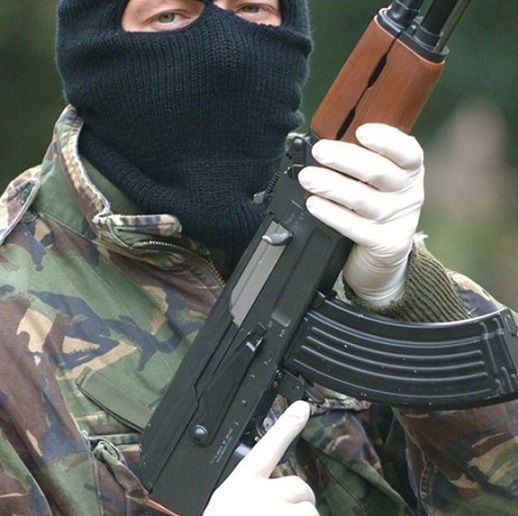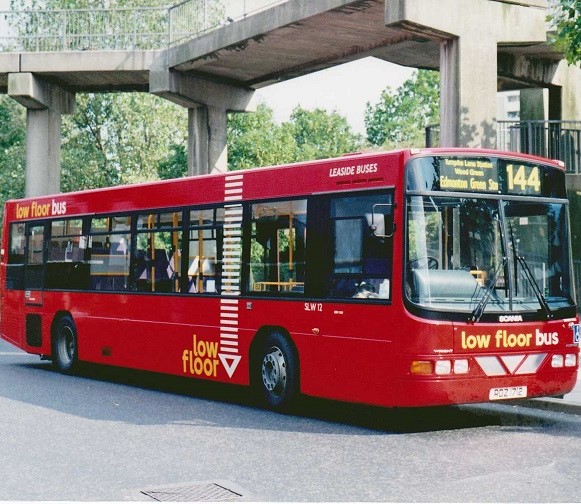Speaking with the IRA on a north London bus

Around 10 pm on Friday, 15th December 1995, I was on my way home to Edmonton, north London, after completing a day of A-level studies and a four-hour shift at Safeway supermarket in Wood Green. It was a cold night. Thankfully, a single-decker 144 arrived quickly.
During the journey, I observed a jovial young couple: a curly-haired, bespectacled man who looked like comedian Christopher Addison and a rosy-cheeked lady sporting a mousy blonde bob and what appeared to be a nurse’s uniform.
They chatted excitedly and sipped from small bottles of cheap European beer. Both seemed slightly worse for wear, and I became engrossed in their boisterous banter. I guessed they were either co-workers from North Middlesex Hospital or students returning home from a fancy-dress party.
Eventually, curiosity got the best of me, and I injected myself into their conversation. “On the way home from the Christmas party?” I quipped. “No, we’ve just completed our final exams, so we’re celebrating,” the man replied.
The lady explained they were dental students, and the man offered me a beer from his six-pack after I revealed that I’d be turning 18 in a few hours and my mother had been a dental nurse.
We shared our plans for the future, and when the lady alighted at the Great Cambridge Roundabout, the man told me that he was looking forward to spending time with his family in Ireland.
I said that I’d always been fascinated by Ireland and found the Irish to be quite similar to Jamaicans: warm and relaxed but prone to extreme violence when pissed off.
IRA politics
With the benefit of hindsight, I should’ve known he was in no condition to discuss international politics after a two-hour exam, an evening of alcohol-fuelled merriment, and a 40-minute bus ride.
Nevertheless, I guilelessly asked what he knew about the Irish Republican Army (IRA), The Troubles, and if Ireland would ever unite. As the bus turned onto Silver Street, the man sighed and responded with a mixture of bemusement and compassion: “I really couldn’t say. I don’t know anything about the politics, I’m afraid. Anyway, this is my stop. Take care, and best of luck.”
The bus doors closed. I settled into my seat and was surprised by the voice of a softly spoken Irish man behind me. “If you really want to know about The Troubles, I’ll tell ya,” he said.
I turned to see a stocky man in dark clothing with a hooded top pulled over his head sitting in the left corner of the back seat. The hairs on the back of my neck stood up.
Although cognisant that the man was responding to my question, I still looked around to check if he might be talking to someone else. But aside from the driver, we were alone. Immediately, I felt vulnerable, and a barrage of questions raced through my head.

I’d been so engrossed in conversation with the dental students that I had no idea when this man got on the bus or how long he’d been listening to our conversation. Trying hard to appear unfazed, I moved towards the back of the bus.
Irish rebels
The man began explaining how, in the early 20th century, Irish rebels had formed the IRA to unite their country by expelling the colonising English government. I was grateful for the history lesson but anxious to get home safely.
I said I was getting off at the next stop, and my heart sank when the man exited with me. Slowly, I walked the wrong way home and stopped under a streetlight close to the Labour Party Office on Fore Street.
As he continued chronicling contemporary Irish history, I stared into his eyes, trying to read his intentions and etch his features into my memory. Now we were standing, I could tell he was about 5’ 8” and had blonde or light-brown eyebrows. But that was it. Aside from those two attributes, he remained meticulously inconspicuous.
I told him that I was old enough to remember how IRA bombs had killed English civilians at Harrods, Brighton, Bishopsgate, and Warrington. I asked why so many innocent people had to die for the republican cause and if he thought they were close to victory.
I’ll never forget his response. “You see, dealing with the British government is like a race,” he said. “You people like the 100m and 200m sprints that only last a few seconds, and then you’re off on your victory lap” (it took a few moments for me to register that he was referring to African-Caribbeans and forgive the crudity).
Long-distance race
“Our battle is more like a long-distance race, where you pace yourself and bide your time. You might be way down the field for most of the race before you start moving to the front.
“Sometimes you have to hide your strength and let the other guy think he’s winning before you move ahead and claim victory on the last lap. That type of conquest is more gratifying than a flash-in-the-pan sprint.”
The man probably sensed that I was suffering from information overload because unexpectedly, he said, “Our day will come. Keep the faith,” turned, and disappeared into the night. I waited for a while before following his path and heading home.
Although aware that the IRA had committed to a ceasefire following negotiations with the government of British Prime Minister John Major, almost two months would pass before I fully appreciated the significance of everything that I heard that night.
Shortly after 7 pm on Friday, 9th February 1996, the IRA resumed their campaign of violence by detonating a massive truck bomb in the Docklands, close to Canary Wharf in east London.
The blast killed two people and injured over 100 others. Although I have no way of knowing, I’ve always suspected the man I spoke with that night was a member of the team involved in that bombing.